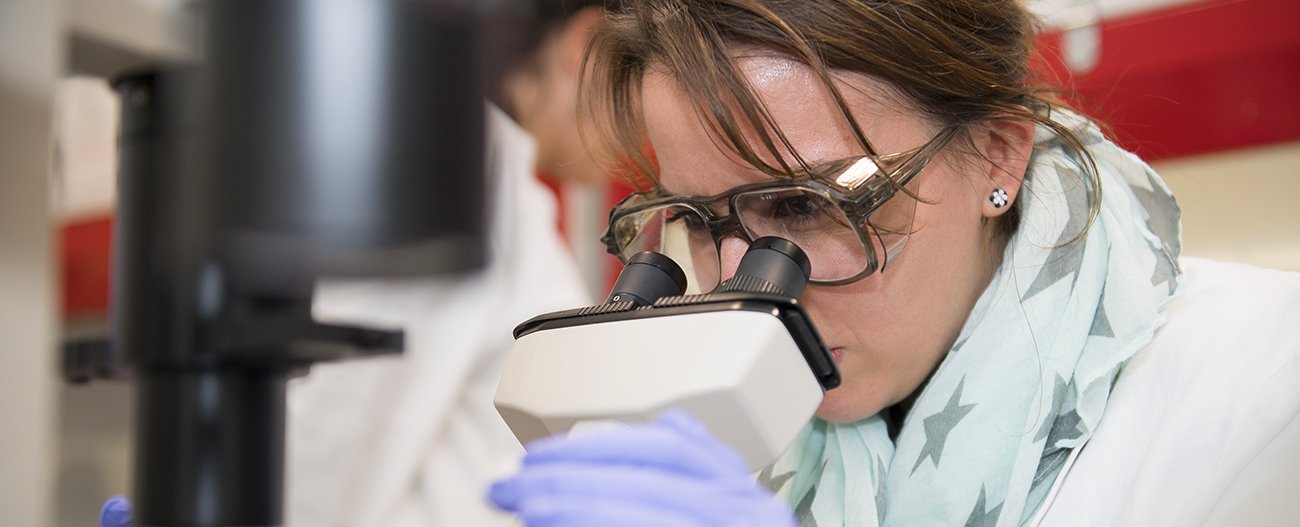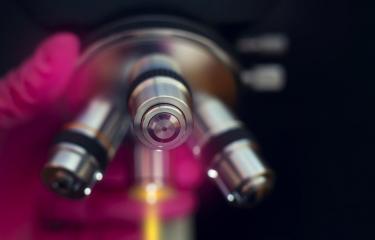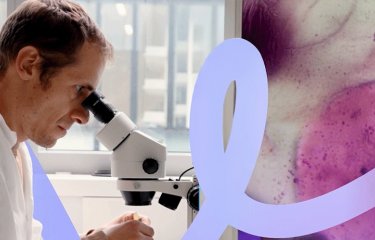The Georges, Jacques and Elias Canetti Prize was set up in 2006 after the family made a donation to the Institut Pasteur of 158 handwritten letters exchanged by the three Canetti brothers: Georges, a physician and scientist at the Institut Pasteur; Jacques, a music producer and founder of the Trois Baudets theater; and Elias, winner of the Nobel Prize in Literature.
The Canetti Prize was set up in tribute to Professor Georges Canetti (1911-1971), who devoted his life to tuberculosis research. He was a pioneer in treatments using several antibiotics – two- then three-drug combination therapies. He also developed an antibiogram that is still used today and discovered a rare mycobacterium that now bears his name, Mycobacterium canetti.
The annual Georges, Jacques and Elias Canetti Prize has recognized the achievements of Institut Pasteur scientists working in the field of infectious diseases.
Consult the leaflet on line (in French) about
the Georges, Jacques and Elias Canetti Prize
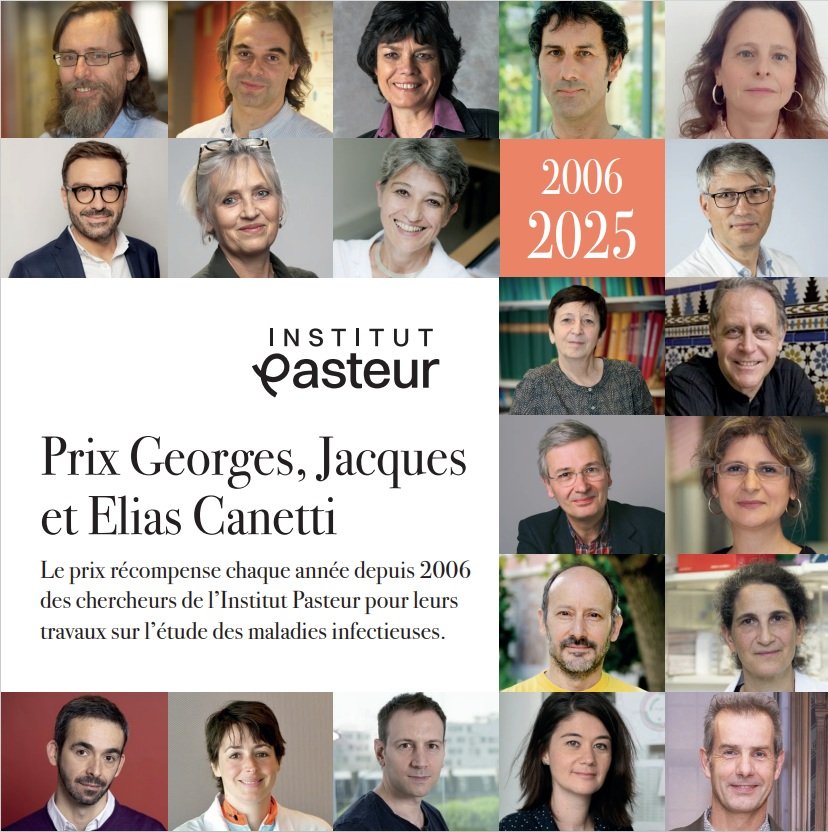
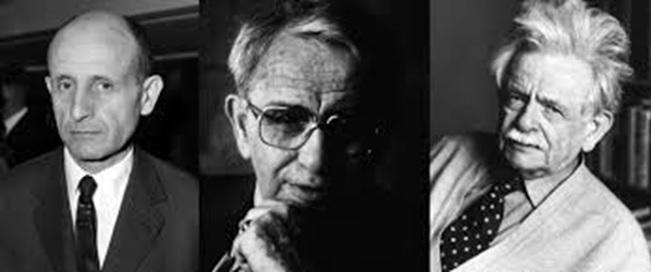
Here are the laureates that the Canetti Prize has rewarded:
Céline Loot
For her work on how bacteria exchange and modify their genes, particularly those involved in antibiotic resistance.

Céline Loot is a CNRS Research Director at the Institut Pasteur in Paris. Since January 2024, she has been leading the group entitled "Adaptive Dynamics of Integrons" within the Bacterial Genome Plasticity unit directed by Didier Mazel.
She completed her thesis under the supervision of Michael Chandler at Paul Sabatier University in Toulouse within the Laboratory of Microbiology and Molecular Genetics. In 2003, she obtained a doctorate focusing on the study of recombination mechanisms of bacterial transposons. She then completed two postdoctoral fellowships, one in Barcelona, Spain, in Dr. JM Casacuberta's team where she studied plant transposons, and the other at the Institut Pasteur in Didier Mazel's Bacterial Genome Plasticity team where she devoted herself to the study of integron systems; she joined the CNRS in 2007 and became a group leader in 2024. Her group studies integrons, genetic elements central to bacterial adaptation and antibiotic resistance. Her recent work is changing the perception of integrons by broadening the evolutionary function of these elements. They reveal that in addition to mediating antibiotic resistance, integrons are a major reservoir of defense genes against bacteriophages, the bacteria-killing viruses. This more complete understanding of the integron as a driver of bacterial evolution and defense is crucial for developing new strategies to combat pathogenic bacteria.
** This text was translated using an AI-powered translation tool **
Mathieu Picardeau
For his work on improving our knowledge of leptospires, the bacteria responsible for a re-emerging and all too often neglected zoonosis: leptospirosis.
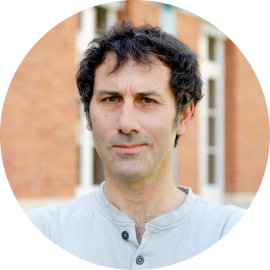
Mathieu Picardeau is a Research Director at the Institut Pasteur. He heads the Spirochete Biology Unit, the National Reference Center for Leptospirosis and the WHO Collaborating Center for Reference and Research on Leptospirosis.
After a thesis on atypical mycobacteria at the Institut Pasteur, he became interested in spirochetes: atypical spiral-shaped bacteria responsible for diseases such as Lyme disease, syphilis and leptospirosis. He first completed a postdoctoral fellowship in the United States on the Lyme disease agent, then upon returning to France to Isabelle Saint Girons' laboratory, he was recruited to the Institut Pasteur in 2001 to work on the leptospirosis agent and subsequently went on to head his own research group in 2007. The unit's research focuses on diagnosis, epidemiology and virulence using genomic and genetic approaches, with the aim of improving the prevention and diagnosis of this re-emerging zoonosis. The unit actively collaborates with various institutes of the Pasteur Network, particularly in endemic tropical regions.
** This text was translated using an AI-powered translation tool **
Sylvain Brisse
For his work on the epidemiological surveillance of antibiotic-resistant bacteria.
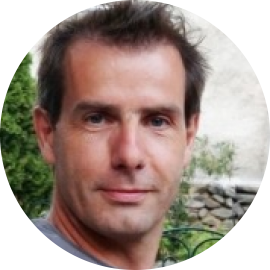
Sylvain Brisse heads the Biodiversity and Epidemiology of Bacterial Pathogens Unit, to which the National Reference Centers for Diphtheria and Pertussis have been attached since 2016.
He graduated from the École Normale Supérieure in Paris in 1992 and holds a doctorate in population biology and ecology from the University of Montpellier in 1997. After a postdoctoral fellowship in the Netherlands from 1998 to 2002, Sylvain Brisse joined Patrick Grimont's laboratory at the Institut Pasteur. Between 2019 and 2022, he directed the Institut Pasteur's Biological Resource Center.
Sylvain Brisse's work has made significant contributions to population biology and epidemiological surveillance of antimicrobial-resistant bacteria in human pathogens such as Klebsiella pneumoniae. In 2004, he deciphered the microevolution of the bacterium Mycobacterium canettii, in which he was the first to detect homologous recombination and to note that it is the ancestral bacterial species of Mycobacterium tuberculosis.
At the Institut Pasteur, Sylvain Brisse has coordinated since 2005 the genomic taxonomy platform for bacterial strains at the Institut Pasteur (BIGSdb-Pasteur). Since January 2023, he has chaired the Commission for Reference and Expert Laboratories (all National Reference Centers hosted at the Institut Pasteur).
** This text was translated using an AI-powered translation tool **
Olaya Rendules‑Garcia
For her work on the adaptation of bacteria and the genetic exchanges responsible for the transmission of antibiotic resistance.
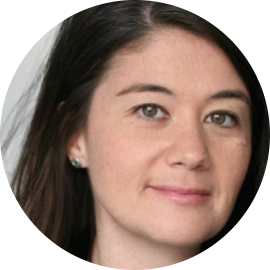
Olaya Rendules-Garcia headed the Microbial Molecular Evolution and Ecology group at the Institut Pasteur, within the Microbial Evolutionary Genomics unit directed by Eduardo Rocha.
A microbiologist trained in Spain, she joined the Institut Pasteur in 2008 to complete her thesis within the Biofilm Genetics unit. In 2012, she joined the University of Zurich for a first postdoctoral fellowship on evolutionary biology, then returned to the Institut Pasteur for a second postdoctoral fellowship in 2015, within the Microbial Evolutionary Genomics unit where she would head a group in 2019.
With her team, Olaya Rendules-Garcia studies bacterial capsules. This outermost layer of certain bacteria is in direct contact with their environment and plays a major role in their virulence and antibiotic resistance.
Using the bacterium Klebsiella pneumoniae as a model, the researcher is developing a multidisciplinary project to provide an overview of the role of capsules and how they affect the evolution of a species' genome in the short, medium and long term.
** This text was translated using an AI-powered translation tool **
Étienne Simon-Lorière
For his work on the evolutionary genomics of RNA viruses.
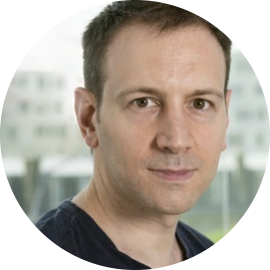
Étienne Simon-Lorière currently heads the Evolutionary Genomics of RNA Viruses unit within the Virology department at the Institut Pasteur.
After obtaining a doctorate in virology and molecular biology in 2009 from the University of Paris VI, he completed a postdoctoral fellowship at the University of Pennsylvania in the United States, before joining the Institut Pasteur where he took the direction of a 5-year group in 2018. In 2024, this group was transformed into a permanent unit of the Institut Pasteur.
Étienne Simon-Lorière's research focuses on the discovery, emergence, transmission and evolution of RNA viruses. His team uses viral genomics to study the evolutionary processes of RNA viruses, particularly respiratory viruses and arboviruses. Part of their work is developed in support with international public health organizations, with the aim of strengthening epidemic and pandemic response capacities.
** This text was translated using an AI-powered translation tool **
Mélanie Hamon
For her research on the epigenetic modifications induced during bacterial infection, in particular the Streptococcus pneumoniae bacterium, which causes severe respiratory infections, especially in vulnerable groups such as elderly people, young children and immunocompromised patients.

Mélanie Hamon leads the Chromatin and Infection five-year research group at the Institut Pasteur.
She holds a PhD in Microbiology and Immunology from the University of California, Los Angeles, in the United States (2004) and an accreditation to supervise research from Pierre & Marie Curie University (2013). In 2005, she joined the Institut Pasteur to pursue a post-doctoral fellowship in the unit led by Pascale Cossart.She became a research assistant at the Institut Pasteur in 2008 and was promoted to the status of Research Associate in 2011, before being selected in 2016 to lead her own research group in the Department of Cell Biology and Infection.
The Chromatin and Infection group investigates how bacteria interact with the host cell. Mélanie Hamon's research explores the epigenetic changes induced during bacterial infections and the impact of these changes on human gene expression. Two bacterial models are under study in her laboratory: Streptococcus pneumoniae, responsible for severe respiratory infections, and Listeria monocytogenes, which causes foodborne infections.
Mélanie Hamon won the Deschiens Prize from the French National Academy of Medicine (2015) and the iXblue Foundation Prize for Research (2020).
Alongside her research activities, Mélanie Hamon is a keen cyclist.
Ludovic Tailleux
For his work on the tuberculosis bacillus

Ludovic Tailleux is a Research Associate at the Institut Pasteur. He works in the Integrated Mycobacterial Pathogenomics Unit led by Roland Brosch (winner of the 2007 Canetti Prize).
Ludovic Tailleux holds a PhD in Immunology from Paris Diderot University (2003) and an accreditation to supervise research from Paris Descartes University (2016). He completed his post-doctoral fellowship at the Institut Pasteur in the unit led by Brigitte Gicquel (winner of the Canetti Prize in 2008) and was recruited as a Research Associate in the unit in 2006. He was promoted to the status of Director of Research in 2015.
Ludovic Tailleux adopts a multidisciplinary approach combining immunology, microbiology and genetics to shed light on how the etiological agent of tuberculosis, the Mycobacterium tuberculosis bacterium, interacts with cells in the human immune system.
His research has helped further our understanding of how M. tuberculosis behaves in human dendritic cells (key cells for inducing an immune system response) and has led to the identification of the main M. tuberculosis receptor on the surface of these cells.
Ludovic Tailleux is currently working on the identification of molecules capable of boosting the resistance of human cells to M. tuberculosis infection and/or improving the efficacy of antibiotics.
Ludovic Tailleux won the Jacques Monod Prize in 2003.
Nadia Naffakh
For her work on the Influenza virus.
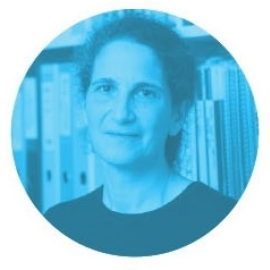
Nadia Naffakh is a CNRS Research Director. She leads the RNA Biology of Influenza Viruses Unit in the Department of Virology at the Institut Pasteur.
A former student of the École normale supérieure in Paris (1985-1989), Nadia Naffakh obtained an agrégation in life and earth science in 1989, a PhD in Virology in 1994 and an accreditation to supervise research at Paris Diderot University in 2008. She joined the Institut Pasteur in 1991 to complete her PhD in the unit led by Jean-Michel Heard. In 1997 she joined the Molecular Genetics of RNA Viruses Unit led by Sylvie van der Werf, where she was recruited as a CNRS Research Associate (CR2 level). She was promoted to CR1 level in 2001, then to the status of Research Director (DR2) in 2011. In 2003, Nadia Naffakh completed a sabbatical year at the National Institutes of Health (NIH) in Bethesda, United States. She was appointed as a Group Leader in Sylvie van der Werf's unit in 2005 and became Head of the RNA Biology of Influenza Viruses Unit in 2020.
Nadia Naffakh's team works on Influenza viruses, respiratory pathogens which represent a major concern for human and animal health and are responsible for annual influenza epidemics, frequent epizootics and occasional pandemics. Her research projects focus on the virus-host cell interactions that underpin the synthesis, maturation and intracellular traffic of viral RNA, all key stages in the viral replication cycle. The long-term aim is to identify new targets for the development of therapeutic molecules and to elucidate the mechanisms that determine the virulence and zoonotic potential of Influenza viruses.
Alongside her research, Nadia Naffakh is actively involved in supporting displaced or refugee populations, both in France and in her home country, Syria.
Javier Pizarro-Cerda
For his work on Listeria monocytogenes, a bacterium responsible for severe foodborne infections, especially in immunocompromised individuals and pregnant women.

Javier Pizarro-Cerda leads the Yersinia Unit in the Department of Microbiology at the Institut Pasteur. With his team, he is responsible for monitoring the risk of a plague outbreak and the development of a vaccine against the plague agent, Yersinia pestis.
After completing university studies in Costa Rica, Javier Pizarro-Cerda arrived in France in 1994 as a PhD student at Aix-Marseille University. In 1999, he joined the Institut Pasteur to pursue a post-doctoral fellowship in the unit led by Pascale Cossart. He became a research assistant at the Institut Pasteur in 2002 and was promoted to Director of Research in 2015.
One of the major advances in his research was the identification of a novel bactericidal toxin produced by Listeria monocytogenes in the host intestine to destabilize the microbiota. Listeria monocytogenes is responsible for severe foodborne infections, especially in immunocompromised individuals and pregnant women.
Javier Pizarro-Cerda became a member of Academia Europaea in 2019. He is President of COMESP (the Committee for the Assessment of Staff Scientific Activities) at the Institut Pasteur and is a member of the organizing committee for the vector-borne diseases section. He is committed to strengthening links between the Institut Pasteur and South America.
Alongside his research, Javier Pizarro-Cerda loves music and traveling.
Laleh Majlessi
For her research on host innate and adaptive immune responses to Mycobacterium tuberculosis, the bacillus responsible for tuberculosis in humans, and especially the influence of its specialized secretion systems.

Laleh Majlessi is a Director of Research at the Institut Pasteur. Together with Pierre Charneau, she is scientific co-director of the Institut Pasteur-TheraVectys Joint Laboratory.
Laleh Majlessi was born in Iran. She completed university studies at Paris Diderot University and joined the Institut Pasteur in 1990 to pursue a postgraduate degree (DEA) and then a PhD in Immunology in the laboratory run by Guy Bordenave.
In 1995, she was recruited as a research assistant at the Institut Pasteur, before being promoted to the status of Research Associate in 1998 and Director of Research in 2016. Laleh Majlessi obtained her accreditation to supervise research from Paris Diderot University in 2011.
In 2000, she joined the laboratory led by Claude Leclerc, laureate of the 2012 Canetti Prize. She instigated and developed research on the immune response to infection with Mycobacterium tuberculosis (the bacterium responsible for tuberculosis) and worked with Stewart Cole's team on the immunogenic effect of M. tuberculosis virulence factors.
This research was then continued in collaboration with Roland Brosch, winner of the 2007 Canetti Prize, in the Integrated Mycobacterial Pathogenomics Unit that he leads at the Institut Pasteur.
Laleh Majlessi's work has led to major progress in our understanding of the mechanisms of immune protection against infectious agents.
Laleh Majlessi is currently focusing her efforts on the development of a vaccine candidate for the SARS-CoV-2 coronavirus, responsible for the COVID-19 pandemic.
Claude Parsot
For his research on shigellosis, a diarrheal disease that is prevalent in tropical regions.

Claude Parsot is a Director of Research at the Institut Pasteur. He works in the Enteric Bacterial Pathogens Unit led by Francois-Xavier Weill (winner of the 2013 Canetti Prize).
Claude Parsot joined the Institut Pasteur in 1981 to pursue a PhD in Georges Cohen's laboratory on the biosynthesis pathways of amino acids. In 1988, he joined John Mekalanos' laboratory at Harvard Medical School in Boston, United States, to work on the regulation of virulence genes in the cholera bacterium.
Claude Parsot returned to the Institut Pasteur in 1990, this time to Philippe Sansonetti's unit, where he began working on another enteric pathogenic bacterium, Shigella flexneri. One of the major advances in the research by Claude Parsot and his team was the identification of a "syringe-needle" system used by S. flexneri to inject its virulence factors into the host cell (a type III secretion system).
In recognition of the quality of his research, Claude Parsot received the Louis Pasteur medal from the French Academy of Sciences in 2006.
In 2010, Claude Parsot was appointed as Executive Director for Education at the Institut Pasteur, a post he held until 2014.
Fernando Arenzana-Seisdedos
For his HIV research demonstrating the role of chemokines, which opened up new therapeutic prospects.

Fernando Arenzana-Seisdedos is a physician and biologist. He is currently Deputy Scientific Director at the Institut Pasteur of Shanghai in China.
In 1986, after completing studies in pediatric medicine at the University of Seville, his home city, Fernando Arenzana joined Jean-Louis Virlizier's team at the Institut Pasteur to pursue a post-doctoral fellowship.
In 2007, Fernando Arenzana was appointed as Head of the Viral Pathogenesis Unit at the Institut Pasteur.
His team investigated the interactions between HIV and the cells it infects and demonstrated the role of chemokines. These molecules produced by the body bind naturally to the target cells of the virus by using the same receptors, thereby entering into competition with the virus and preventing it from entering these cells. The team's research inspired the development of new therapeutic approaches to HIV infection. Their work also revealed how the virus manages to avoid being inhibited by chemokines by using cell receptors that are "inaccessible" to them.
François-Xavier Weill
For his research on Salmonella and some species of Escherichia coli to help tackle and prevent foodborne infections.

François-Xavier Weill is a Director of Research at the Institut Pasteur. He leads the Enteric Bacterial Pathogens Unit, the National Reference Center for Escherichia coli, Shigella and Salmonella and the WHO Collaborating Center for Typing and Antibiotic Resistance of Salmonella.
François-Xavier Weill is a physician and biologist who for the past 20 years has focused on diversity, genetic evolution and the circulation of pathogenic bacteria, especially antibiotic-resistant bacteria. His work in the field of microbial genomics has improved our understanding of the evolutionary history of major pathogens such as the agents of cholera, typhoid and paratyphoid fever, dysentery and foodborne salmonellosis. The results of his research have been published in prestigious scientific journals and some have been transposed to public health strategies.
François-Xavier Weill is a laureate of the Deschiens Prize and the Eloi Collery Prize, awarded by the French National Academy of Medicine in 2007 and 2018 respectively, and the Canetti Prize in 2013.
Claude Leclerc
For her research on new vaccine strategies, especially for tuberculosis vaccines and for two cancer vaccines in clinical trials.
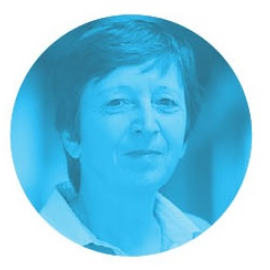
Claude Leclerc is an Honorary Professor at the Institut Pasteur, where she led the Immune Regulation and Vaccinology Unit from 1992 to 2018.
Claude Leclerc joined the Institut Pasteur in 1973, firstly as a student on the Advanced Immunology course as part of her postgraduate degree (DEA) program and then as a PhD student in Louis Sélim Chedid's laboratory. In 1981, she completed an advanced PhD in Immunology at Paris Diderot University and was appointed as a research assistant at the Institut Pasteur. She was promoted to the status of Research Associate in 1984, Head of Laboratory in 1987 and Professor in 2002. In 2003, she was appointed as Director of the Inserm unit 352/U883/U1041.
Claude Leclerc's research focuses on the development of vaccine strategies, with the aim of improving tolerance to vaccines and the quality of the immune response.
Major advances in her research include the development of three therapeutic vaccine candidates (one in particular for cervical cancer) which are currently in clinical development. Her work has also improved understanding of the molecular mechanisms underpinning the interaction between tumors and the immune system.
Claude Leclerc has received several awards and honors in recognition of her work in immunology, including the Georges Zermati Prize (1996), the Paris Prize from the Ligue Contre le Cancer (2004), an award from Yangzhou University (2007) and the Canetti Prize (2012).
Claude Leclerc was also appointed to the Louis Pasteur Chair of Excellence in 2016 and was elected as a member of the French Academy of Pharmacy in 2017.
Françoise Dromer
In recognition of and support for her research on cryptococcosis, a major opportunistic infection in HIV patients.

Françoise Dromer is a Professor at the Institut Pasteur, where she has led the Molecular Mycology Unit and the National Reference Center for Invasive Mycoses and Antifungals since 2002.
As a physician, Françoise Dromer seeks to improve the prognosis of severe mycoses by improving our understanding of the mechanisms underpinning these infections. Her laboratory particularly focuses on Cryptococcus neoformans, an encapsulated yeast responsible for pulmonary infections and neurological and meningeal signs in immunocompromised patients.
With her team and her clinician and mycologist colleagues at Saint-Louis Hospital and Necker Hospital in Paris, Françoise Dromer applies her expertise to the identification of rare pathogenic fungi responsible for invasive mycoses. At a national level she is responsible for monitoring invasive mycoses and resistance to antifungal agents in association with Santé publique France.
Alongside her research, Françoise Dromer is Deputy Director of the Scientific Careers and Assessment Department.
In recognition of her work, Françoise Dromer received the Deschiens Prize from the French National Academy of Medicine in 2001 and was elected as a member of the American Academy of Microbiology in 2006.
Caroline Demangel
For her work on Mycobacterium ulcerans, the bacterium that causes Buruli ulcer.

Caroline Demangel is a Director of Research at the Institut Pasteur, where she leads the Immunobiology of Infection Unit in the Department of Immunology.
After graduating in engineering from the Institut National Agronomique Paris-Grignon (now part of AgroParisTech) in 1988, Caroline Demangel completed a PhD in Biotechnology in the company Bertin (Plaisir, France) in 1992. She then decided to pursue a career in academic research and carried out a post-doctoral fellowship at the Institut Pasteur in Jean-Claude Mazié's laboratory (1993-1995). She was recruited as a Research Associate in the laboratory in 1996.
In 1998, Caroline Demangel joined Warwick Britton's laboratory at the Centenary Institute in Sydney, Australia, where she developed her expertise on the immune response and the development of vaccine strategies to tackle mycobacterial infection.
She came back to Paris in 2002 and joined Stewart Cole's team at the Institut Pasteur, where she worked on developing new diagnostic and therapeutic approaches for mycobacterial diseases, with a particular interest in leprosy and Buruli ulcer.
The team led by Caroline Demangel is currently studying the molecular mechanisms used by pathogenic mycobacteria to establish chronic infections in humans and is seeking to identify virulence factors in these bacteria that are capable of interfering with host immunity. The ultimate aim of this research is to develop innovative approaches to improve the treatment of mycobacterial infections and to identify new natural compounds with immunomodulatory potential.
Caroline Demangel defended her accreditation to supervise research at Paris Diderot University in 2006. She is currently Deputy Director of the Department of Immunology at the Institut Pasteur.
Lluis Quintana-Murci
In recognition of his work at the intersection of basic research in population genetics and applied research in epidemiology and human health, which has shed light on the way in which our environment has influenced our biological adaptation to infectious agents and our current susceptibility to infectious diseases.

Lluis Quintana-Murci is a Professor at the Collège de France and the Institut Pasteur. He leads the Human Evolutionary Genetics Unit at the Institut Pasteur.
Lluis Quintana-Murci was born in 1970 in Palma de Mallorca, Spain. He completed university studies in Barcelona, Spain, a PhD in Population Genetics at the University of Pavia, Italy, and an accreditation to supervise research at Pierre & Marie Curie University, Paris. In 2001, he was recruited to the CNRS as a Research Associate, and in 2008 he was promoted to the status of Director of Research.
The aim of the research conducted by Lluis Quintana-Murci and his team is to identify the genetic basis for resistance or susceptibility to microbial infection in humans. The results of their work help improve our understanding of the way in which natural selection has targeted innate immunity genes during evolution.
Lluis Quintana-Murci served as Scientific Director of the Institut Pasteur from 2016 to 2017. His research has been recognized by several prestigious prizes: the CNRS Bronze Medal (2008), the Dagnan-Bouveret Prize from the French Academy of Sciences (2009), the Canetti Prize (2009), the CNRS Silver Medal (2013), the Grand Prix for Medical Research awarded by the City of Paris (2014), the Mergier-Bourdeix Prize from the Academy of Sciences (2015), the Duquesne Award (2020) and the Allianz Prize from the Academy of Sciences (2020).
Lluis Quintana-Murci is holder of the Chair in Human Genomics and Evolution at the Collège de France and is a member of EMBO, Academia Europaea and the French Academy of Sciences.
Brigitte Gicquel
For her work on tuberculosis.
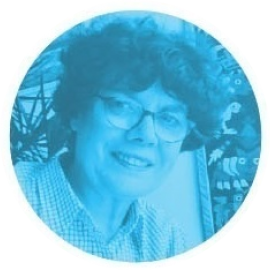
Brigitte Gicquel is a Professor at the Institut Pasteur, where she leads the Mycobacterial Genetics Unit.
After completing medical studies at Paris Diderot University, Brigitte Gicquel joined the Institut Pasteur in 1973. She has devoted much of her scientific career to the genetics of mycobacteria, more specifically Mycobacterium tuberculosis.
With her team, she developed powerful genetic tools to study this bacterium and in 1998 she played a pioneering role in identifying the first genes responsible for its virulence. Research into these genes and their products is currently driving the search for future antibiotics.
Brigitte Gicquel's work also led to the development of a vaccine candidate, following her investigation of the vaccine potential of several laboratory-attenuated bacilli, and the development of a rapid diagnostic test for tuberculosis (1 day instead of 3 to 6 weeks).
Throughout her career, Brigitte Gicquel has worked closely with the countries in which tuberculosis is widespread (including Central African Republic, Madagascar and China) to improve diagnostic methods in these countries, and has performed epidemiological studies to analyze the emergence of multiple antibiotic resistance in the bacillus.
Brigitte Gicquel has also coordinated several European projects on tuberculosis, especially focusing on the search for new vaccines and on ethical issues regarding clinical trials in various countries.
Roland Brosch
For his work on tuberculosis.
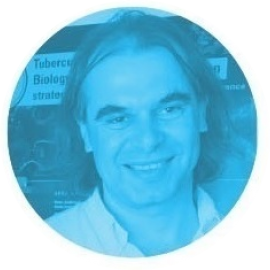
Roland Brosch
is a Professor at the Institut Pasteur. Since 2008, he has led the Integrated Mycobacterial Pathogenomics Unit in the Department of Microbiology.
Roland Brosch completed a PhD at the University of Salzburg in his home country of Austria. He then embarked on several years of post-doctoral training at the University of Wisconsin–Madison, United States, and the Institut Pasteur in Paris (in the laboratories led by Dr. Jocelyne Rocourt and Professor Patrick Grimont). In 2000, he was recruited as a Research Associate in the Bacterial Molecular Genetics Unit led by Professor Stewart Cole.
Roland Brosch has worked for more than 20 years on mycobacteria, especially on the etiological agent of tuberculosis, Mycobacterium tuberculosis. His use of genomics and molecular genetics approaches enabled him to trace the evolutionary history of the bacterium and rule out the widespread theory that Mycobacterium bovis, the causative agent of bovine tuberculosis, was the ancestor of M. tuberculosis. He demonstrated that Mycobacterium canetti, a very rare variant of the tuberculosis bacillus, isolated for the first time in 1969 by Georges Canetti, was phylogenetically similar to the ancestor of M. tuberculosis.
By comparing the genome of M. tuberculosis with that of the attenuated vaccine strain M. bovis BCG, Roland Brosch successfully identified the factors responsible for the attenuation of the BCG. His detailed study of a key region that is present in M. tuberculosis but absent from M. bovis BCG enabled him to demonstrate the existence of a protein secretion system that is vital for the bacteria to grow in the host cell and become virulent.
Roland Brosch and his team are currently focusing their efforts on the development of vaccine strains that offer greater protection than the BCG and on the identification of molecular compounds capable of limiting the growth of M. tuberculosis in preclinical infection models.
Roland Brosch is a member of the European Academy of Microbiology (EAM, 2017) and the American Academy of Microbiology (AAM, 2019).
Pedro Alzari
For his research aimed at identifying and characterizing new therapeutic targets for tuberculosis.

Pedro Alzari is a Professor at the Institut Pasteur, where he has directed the Structural Microbiology Unit since 1998.
Pedro Alzari holds a PhD in Physics from the National University of La Plata, Argentina (1985). He was recruited as a Research Associate at the Institut Pasteur in 1987 and promoted to the status of Director of Research in 1994 and Professor in 2004.
His laboratory explores the cell signaling pathways responsible for the development and virulence of pathogenic bacteria, especially Mycobacterium tuberculosis.
Pedro Alzari has held several positions at the Institut Pasteur, including Deputy Director of the Department of Structural Biology and Chemistry (2006-2009), member of the Institut Pasteur Scientific Council (2009-2013), Scientific Director of the Proteopole (2010-2014) and member of the General Meeting board (since 2017).
Pedro Alzari was awarded the Thérèse Lebrasseur Prize by the Fondation de France in 2000 and the Canetti Prize in 2006.



